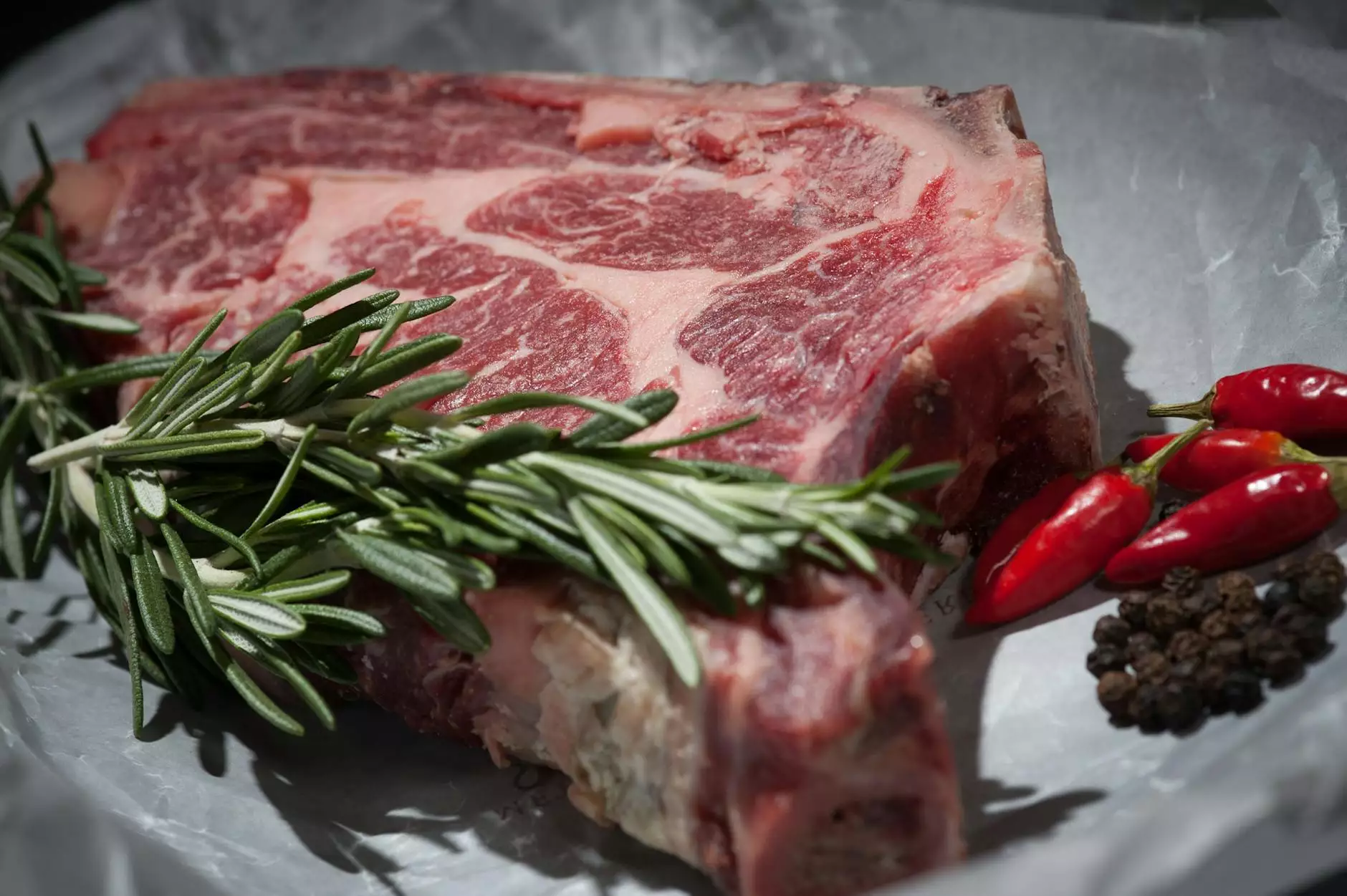Ultimate Guide to Quality Meat to Buy for Your Business

Meat selection plays a crucial role in the culinary world, especially for business owners looking to elevate their offerings. In the competitive food industry, having the right quality meat to buy can set your establishment apart from the rest. Whether you are a restaurant owner, caterer, or a deli manager, understanding what types of meat to source and where to find them is essential. In this extensive guide, we will explore the different types of meat available, sourcing tips, benefits of choosing imported food, and how to identify the best meat shops.
Understanding Different Types of Meat
When it comes to meat to buy, it's essential to recognize the different categories available:
- Red Meat: This includes beef, lamb, pork, and goat. Red meat is known for its rich flavor and high protein content, making it a popular choice among consumers.
- Poultry: Chicken and turkey are the most common types of poultry. They are recognized for their versatility and health benefits.
- Game Meat: This refers to meat from wild animals, such as venison, duck, and rabbit. Game meat often has a distinctive taste and is sought after for its uniqueness.
- Processed Meat: Products such as sausages, bacon, and deli meats fall under this category. They can enhance various dishes while adding convenience for consumers.
Why Choose Imported Meat?
Choosing imported meat can offer several advantages to businesses:
- Quality Standards: Many countries adhere to strict regulations and quality standards that can result in superior meat products.
- Diverse Flavor Profiles: Imported meats can range from the rich flavors of Argentine beef to the delicate taste of Japanese Wagyu, enhancing menu diversity.
- Specialty Products: Certain imported meats are not readily available locally, allowing businesses to stand out with unique offerings.
Criteria for Selecting Quality Meat to Buy
When sourcing meat, it's vital to consider various criteria to ensure quality:
- Freshness: Always check the expiration dates and choose products that are as fresh as possible. Look for meats that have a bright color and firm texture.
- Source: Know where the meat comes from. Research regions known for specific types of meat to ensure you get the best quality.
- Certification: Look for certifications that may indicate higher quality standards, such as grass-fed, organic, or free-range.
- Supplier Reputation: Establish relationships with trusted suppliers who prioritize ethical farming practices and quality products.
Where to Buy Quality Imported Meat
Finding the right meat shops and suppliers can significantly impact your business. Here are some tips on where to buy meat to buy:
- Local Meat Shops: Visit meat shops that specialize in imported foods. These shops often have knowledgeable staff who can help you make the best choices based on your needs.
- Online Suppliers: Consider reputable online suppliers who specialize in international meat sales. Many offer convenient delivery options.
- Farmers' Markets: These markets often feature local and imported products directly from the producer. Speak to vendors about their sourcing practices for the best product.
- Food Expos: Attend food and trade expos where you can meet suppliers, taste products, and learn about new import regulations and trends.
The Advantages of Ordering Meat in Bulk
For businesses, ordering meat in bulk can lead to several benefits:
- Cost Savings: Buying in bulk usually comes with lower prices per unit, allowing businesses to maintain profit margins.
- Consistency: Bulk orders enable businesses to maintain consistency in taste and quality, essential for customer satisfaction.
- Convenience: Having a large supply on hand reduces the frequency of orders, minimizing disruptions in menu offerings.
Preparing and Storing Meat
Once you've sourced your meat, proper preparation and storage are critical for maintaining quality:
- Thawing: Always thaw frozen meat in the refrigerator or cold water to prevent bacterial growth.
- Marinating: Marinades can enhance flavor and tenderness. Be sure to marinate meats in the refrigerator, not at room temperature.
- Storing: Store meat in airtight containers in the refrigerator or freezer to preserve freshness. Keep track of expiration dates.
Health Benefits of a Meaty Diet
Incorporating quality meat into your diet can offer numerous health benefits, including:
- Protein Source: Meat is one of the best sources of protein, essential for building and repairing tissues.
- Iron and Zinc: Many meats, particularly red meat, are rich in iron and zinc, crucial for metabolism and immune function.
- Vitamin B12: Meat is a significant source of Vitamin B12, vital for nerve function and the production of DNA and red blood cells.
Tips for Cooking Different Types of Meat
Different types of meat require varied cooking methods for the best results:
- Beef: For tougher cuts, consider slow cooking or braising. For steaks, grilling or pan-searing is ideal.
- Poultry: Ensure chicken and turkey are cooked to an internal temperature of 165°F (75°C) to avoid foodborne illnesses.
- Pork: Cook pork to at least 145°F (63°C) for optimal safety and flavor.
Building Customer Loyalty through Quality Meat Offerings
For business owners, investing in quality meats isn't just about serving food; it's about building a brand that customers trust:
- Transparency: Be transparent about where your meat comes from, which can increase customer trust and loyalty.
- Quality Assurance: Regularly assess the quality of your meat offerings to ensure they meet the standards your customers expect.
- Unique Offerings: Stand out by offering unique meat options and dishes that aren't found elsewhere.
Final Thoughts on Sourcing Quality Meat to Buy
Whether you are a chef, a caterer, or a deli owner, the choices you make in sourcing your meat can significantly influence your success. By focusing on quality, embracing imported foods, and developing relationships with top-notch suppliers, you can elevate your business and satisfy your customers with the best meat to buy.
In conclusion, as the demand for quality meat continues to grow, and as consumers become more discerning about their food choices, being well-informed is essential. Remember, it starts with knowing what types of meat to prioritize for your business and understanding how to effectively source and sell these products. With the right approach, your business can thrive in the competitive food landscape.








